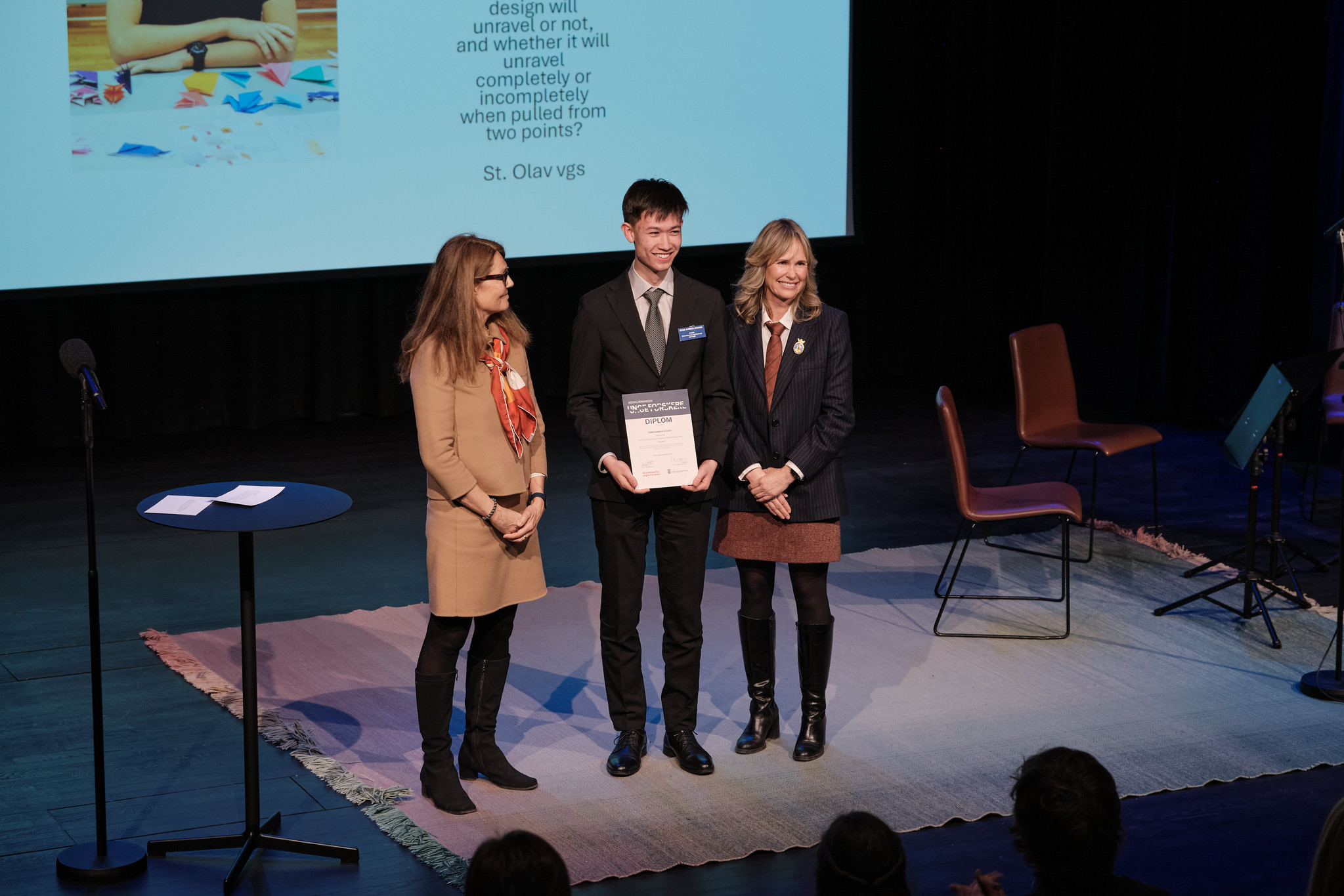CAS awards basic research prize to high school student for innovative origami project
The Young Academy of Norway (AYF) recently convened the second award ceremony for the Norwegian Young Researchers Contest (Konkurransen unge forskere), which highlights exceptional research conducted by secondary and high school students across Norway.

Photo: Kjell Erik Egeland, Von kommunikasjon
This year's competition was marked by a remarkably high standard among participants. At the event held on April 4th at Deichmann Bjørvika, the 20 finalists showcased their research through a poster session, presenting a diverse selection of topics ranging from biomechanics to global health challenges.
The ceremony ended with the introduction of the CAS Basic Research Prize (CAS Grunnforskningspris), awarded for the first time this year. This prize is designed to foster interest in basic research and underscore the intrinsic value of knowledge. It recognises projects driven by curiosity, aimed at challenging conventional theories and posing new and bold research questions
The first recipient of this prize was Toma Kamata Sydnes, whose project also garnered first place in the natural sciences and technology category. The jury recognised his advanced mathematical work, particularly noting that his research question had not been previously addressed in the existing academic literature.
Toma's report "How to Mathematically Evaluate Whether a Rigid Flat-Foldable Origami Design Will Unravel or Not, and Whether It Will Unravel Completely or Incompletely When Pulled from Two Points?", presents a sophisticated level of mathematical theory and analysis. It systematically investigates the mechanics of "pulling" on an origami from two points, proposing new theorems and an “unravelability evaluation algorithm” to assess which creases open and the completeness of the unfolding process.
The jury highlighted three significant contributions that establish the basis for Toma’s robust mathematical analysis: clear definitions and formalism, novel theoretical results, and a comprehensive unravelability evaluation algorithm. The work was commended for its rigor, originality, thorough integration of relevant literature, and the potential for future exploration in the field.
In summary, Toma's project stands out for its creative approach, depth of mathematical reasoning, and clear presentation. It has also been nominated to represent Norway in the European finals in Riga this September.
CAS congratulates all finalists and winners! For further details on the winners in other categories, please refer to this link (in Norwegian) >